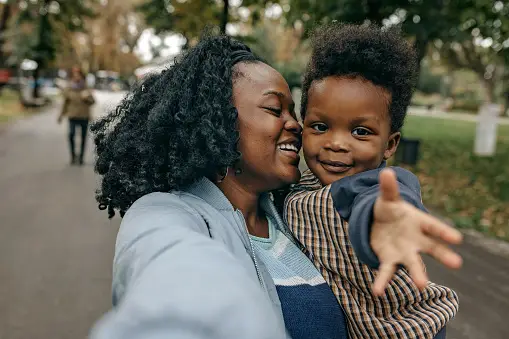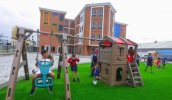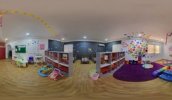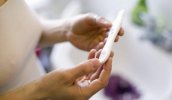Children between 3 and 6 need a lot of guidance and positive parenting. It is crucial to look at your child’s overall tendencies and clusters of behaviours. Even ages 3-6 years your child is very much her own person, and have a mind of their own. Understanding what makes your child feel secure, knowing the activities she enjoys and will learn from will make a difference in your child care decisions.
Optimal development growth
During this age, the children’s world expands. They make friends and begin connecting with more adults beyond the family. They become more mobile and vocal. They’ll have a need to explore and learn everything. It’s a critical time in their development, parenting adults play the central role.
Parents should note that every child develops differently, though. If your child lags in a little in any area of their development such as intellectual or social development, keep an eye out. If the lag becomes significant, you should seek professional help.
Intellectual Development of Early Childhood
- Your baby will seem to jump from one milestone to a milestone.
- It’s important to stimulate your child’s intellectual development by reading aloud to her every day
- Increasingly inventive fantasy play is a notable milestone of this stage.
- Children gradually begin to understand the concept of time. Your baby will be capable of verbal knowledge of a few numbers and can correctly name some colours.
- Preschoolers realize people may have different visual views of the same object.
By age 3, preschoolers know about 300 words. The expand to 1,500 words by age 4 and to 2,500 words by age 5. Continue to stimulate their language development through reading, talking, and asking them questions.
Physical Development of Early Childhood
When healthy babies are born, their internal systems such as breathing and eating, are developed and functional. All infants require responsive care from loving adults, proper nutrition, and appropriately stimulating environments to support the best possible physical development. Toddler physical development occurs quickly, so it is essential to understand it.
Examples of physical development milestones- 3-6 years old;
- Becomes primarily left-handed or right-handed
- Some kids at age 5 are capable of standing on one foot for up to ten seconds
- Climbing, hopping, swinging, and doing somersaults begin at this stage
- Going upstairs and downstairs without the support and can move forward and backwards with ease
- Children may draw a person with two to four body parts. May begin to copy some capital letters and learn how to use a scissors
- Kids at this age have a lot of falls/mishaps because they yearn for physical activities so they often become frustrated that they can’t do them.
Social and Emotional Development of Early Childhood
Social development is an important part of your child’s overall health, wellbeing and happiness throughout his or her life. Social development is closely linked to emotional development, and together these developmental markers build the foundation for developing relationships with other people, coping with stressful situations, being able to regulate their own behaviours and many other skills
Healthy social/emotional development is especially important as a child enters school. Identifying these milestones in your child can be difficult if you’re unfamiliar with them, so here are a few markers.
Between the age of three and six years, a child’s sense of confidence begins to develop, and they start to gain awareness of their own individuality.
At this stage, most children typically begin to:
- Shows increasingly independent behaviours
- Capable of dressing and undressing self
- Demonstrates an ability to share
- Interaction with other children increases and aims to please friends
- Begins to learn how to negotiate solutions to conflicts without being emotional
- Sometimes demanding, sometimes eagerly cooperative
- Shows an understanding of right and wrong.
References
- WebMD. Emotional Development. Accessed on 27th September 2018.










Comments